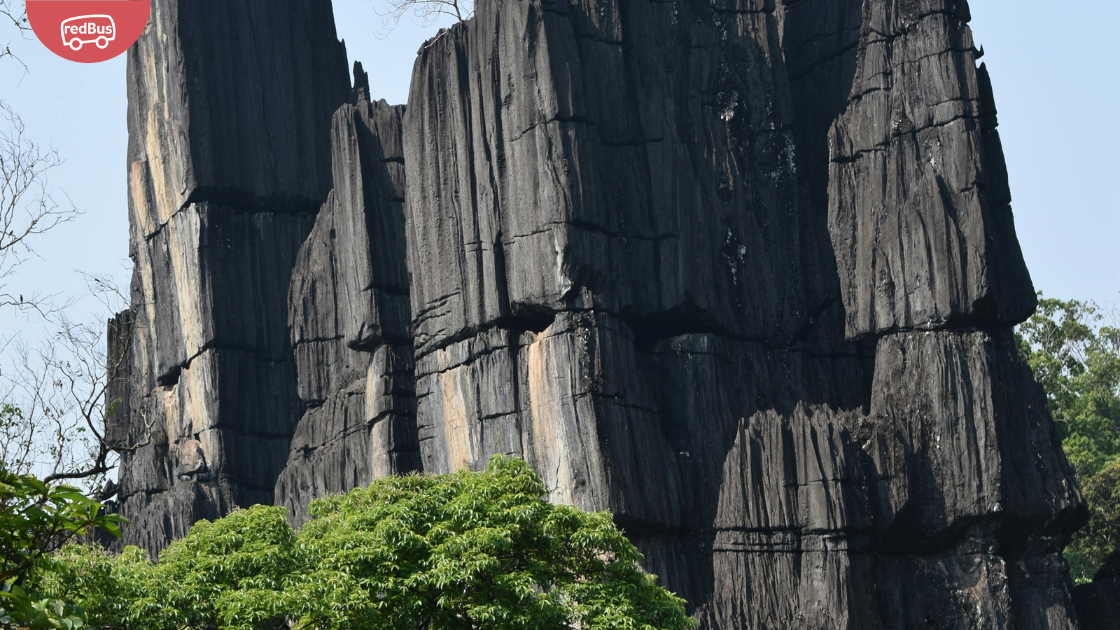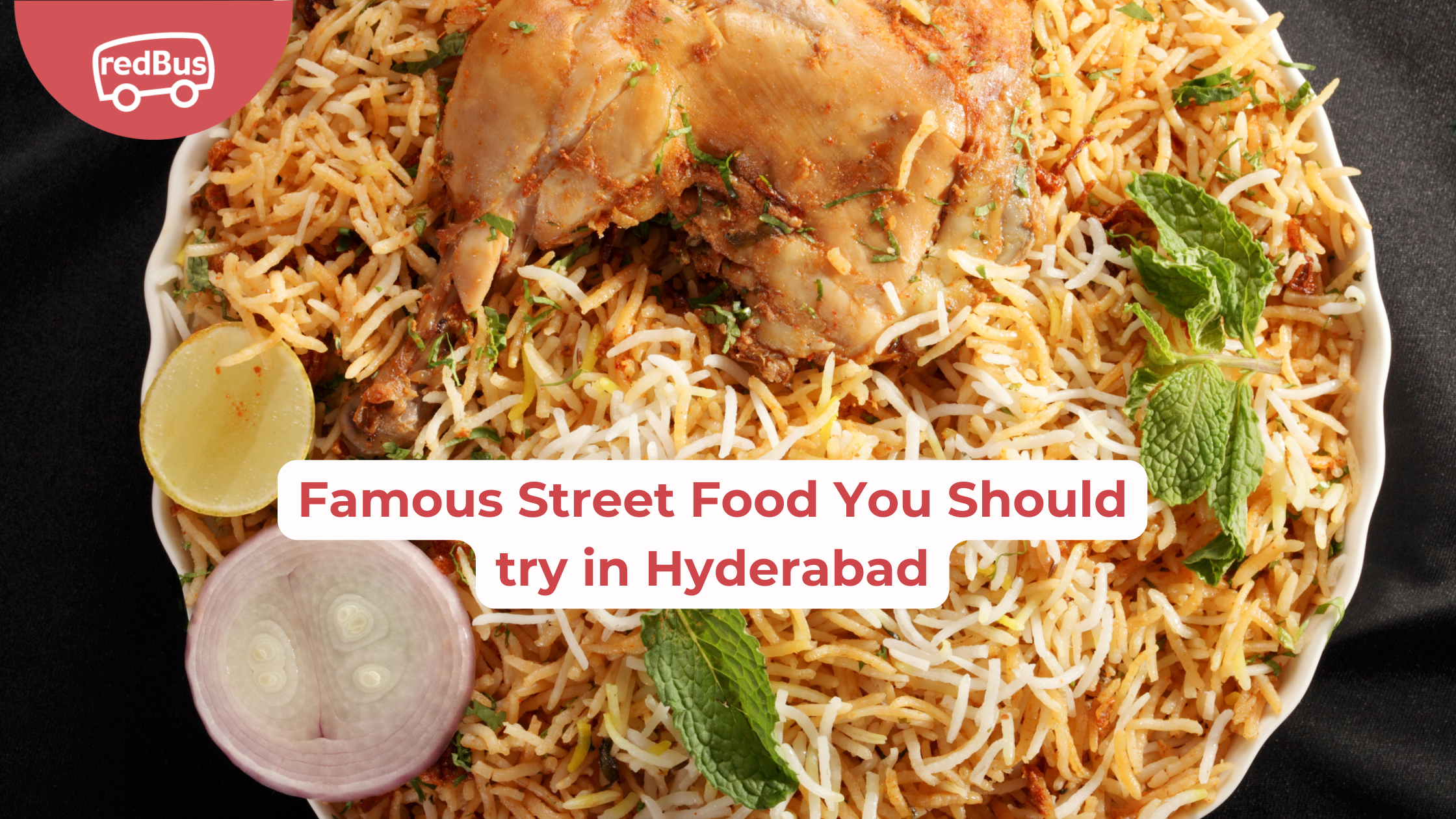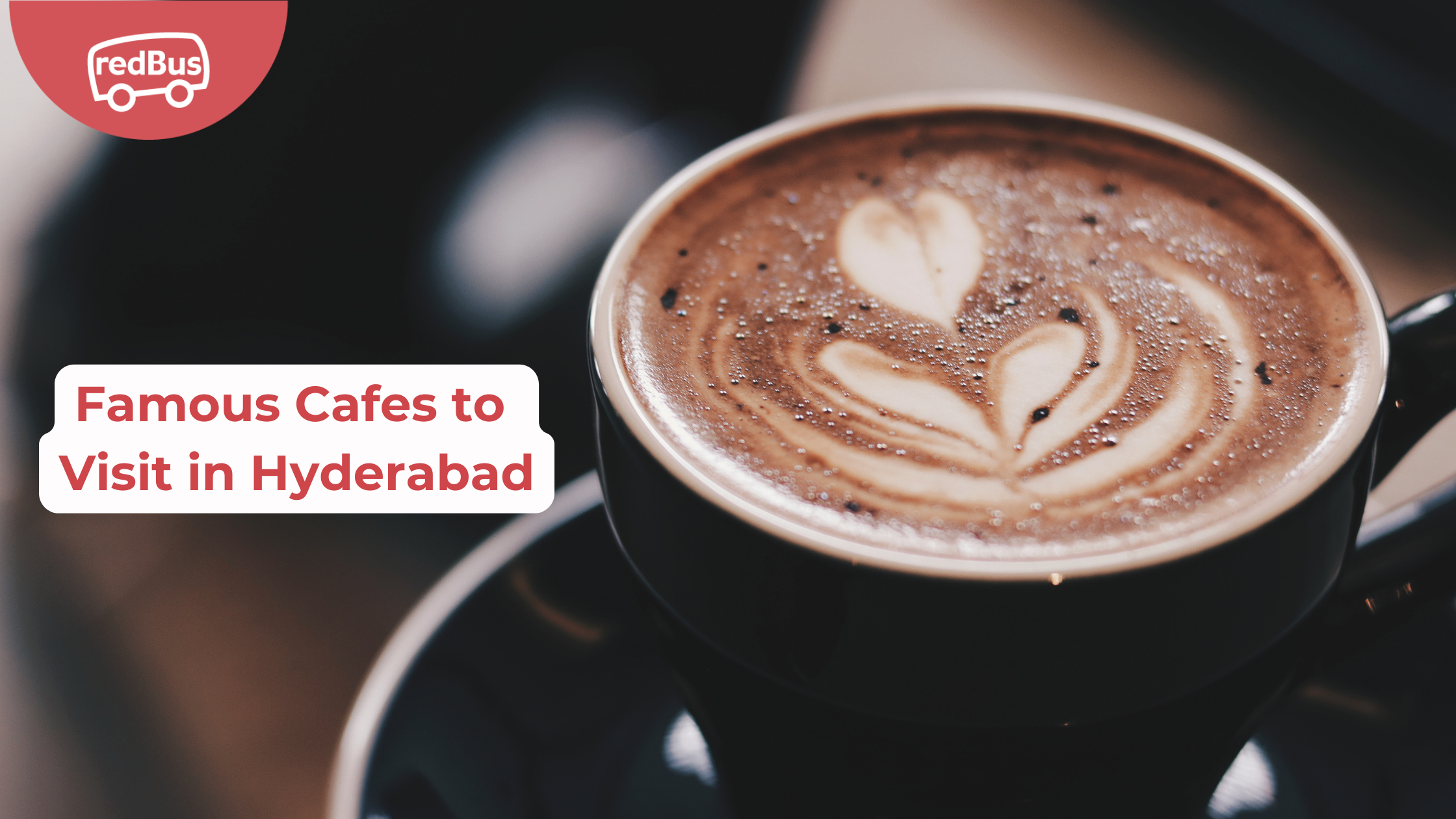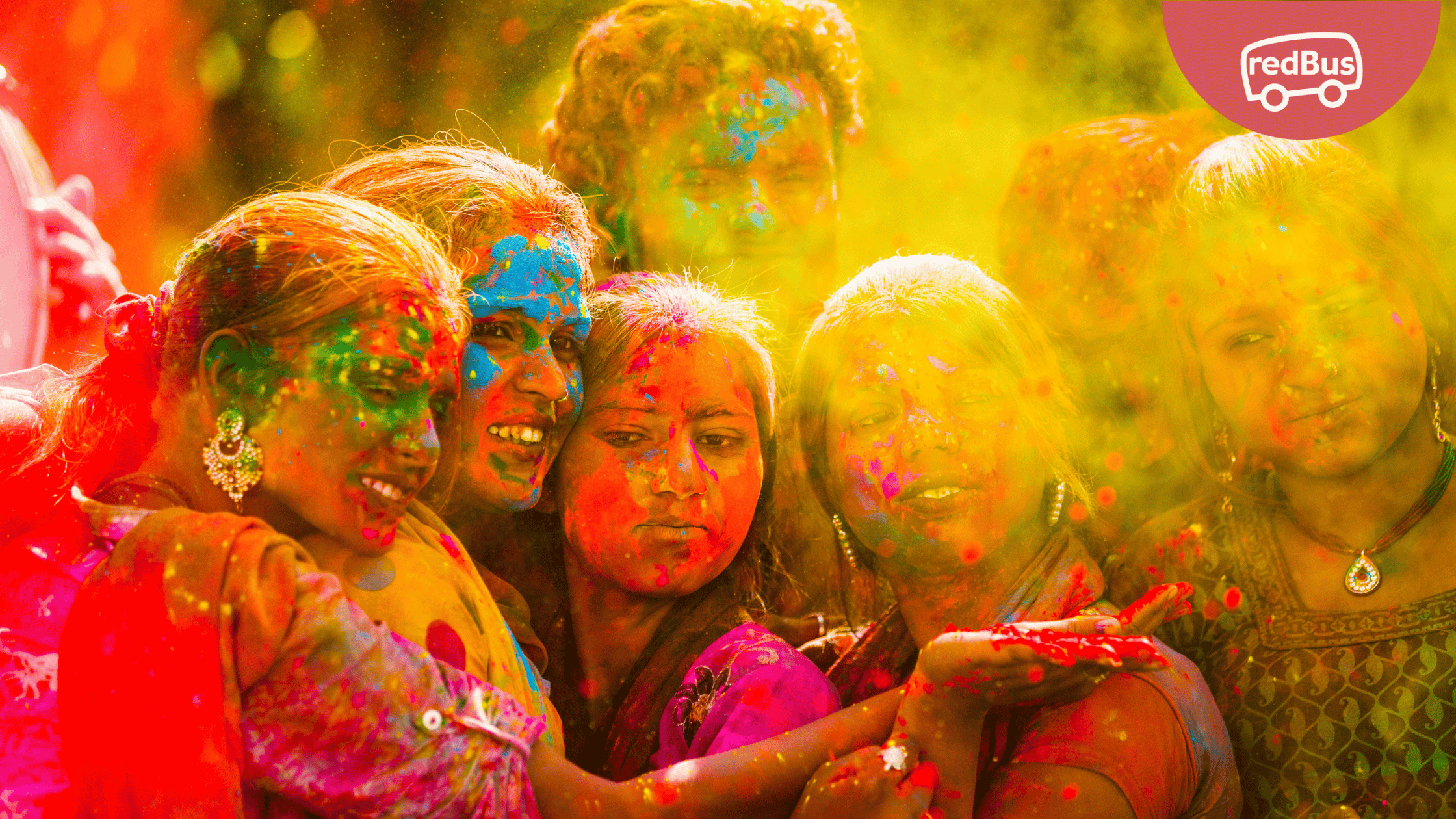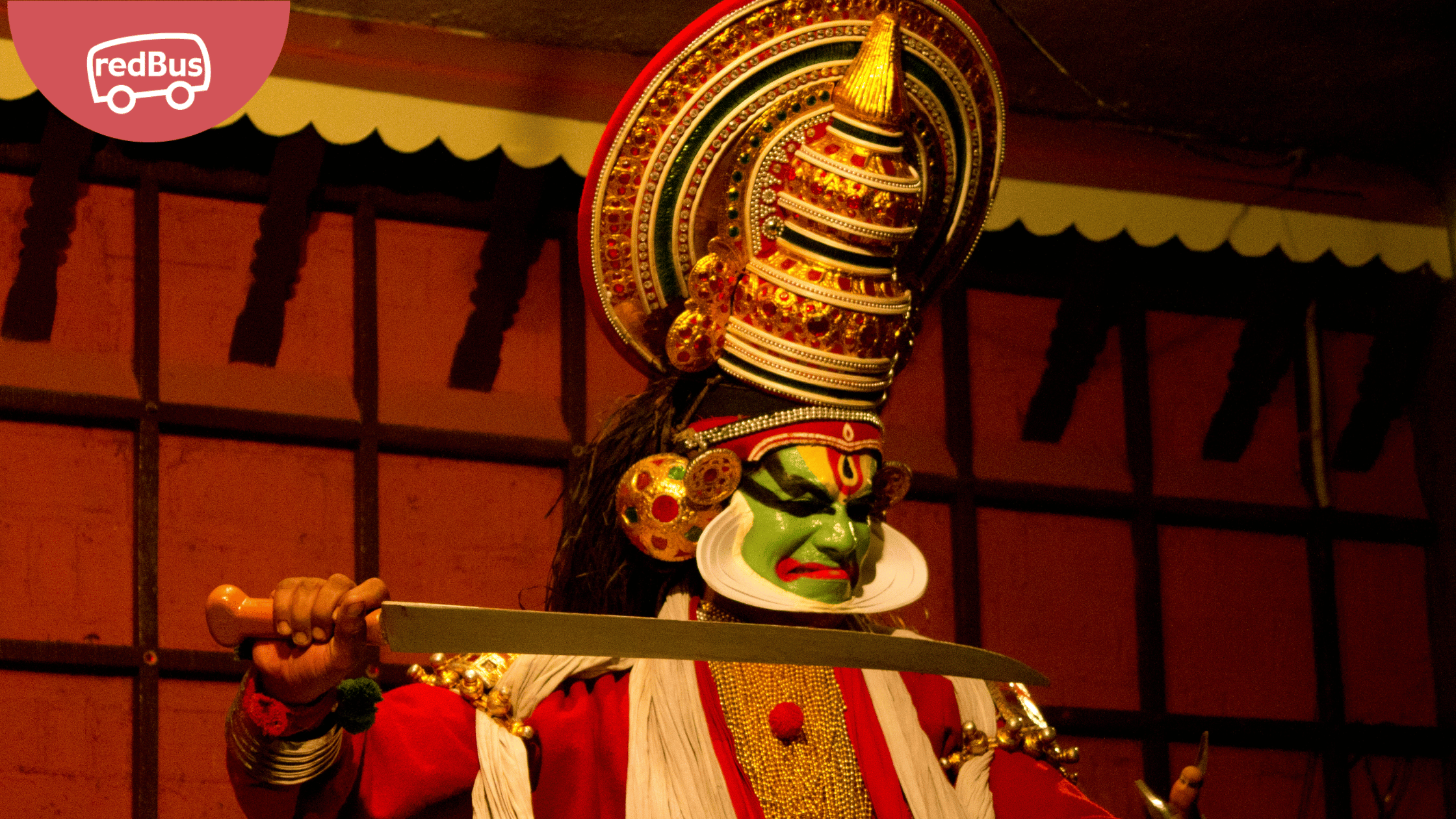Kerala, often called “God’s Own Country,” is known for its vibrant festivals, rich cultural traditions, and captivating art forms. Among its many cultural treasures, Theyyam stands out as one of the most ancient and mystical ritualistic performances, embodying the essence of Kerala’s spiritual and cultural heritage. The annual Theyyam festival held at Perumthitta Tharavadu Kottamkuzhy is a particularly prominent, attracting enthusiasts and devotees from all over the region and beyond.
This ten-day festival is celebrated with unmatched fervour and devotion, making it one of Kerala’s most remarkable Theyyam festivals. Let’s delve deeper into the significance of this event, the fascinating performances, and the incredible atmosphere that defines the Theyyam festival at Perumthitta Tharavadu.
What is Theyyam?
Theyyam, derived from the word “Daivam” (meaning God), is a ritualistic performance art rooted in the ancient traditions of northern Kerala. With origins that can be traced back over 1500 years, Theyyam is considered a sacred art form where artists, often from specific families, undergo intense preparation to transform into deities. This transformation is believed to embody divine powers, allowing performers to act as intermediaries between the gods and the devotees. The dancers don elaborate costumes, intricate face paint, and elaborate headdresses to personify various deities, spirits, and mythical characters.
Each Theyyam performance has its unique style, rituals, and stories, often tied to local myths, legends, and historical events. The spiritual essence of Theyyam lies in its dedication to honouring and celebrating ancestral spirits, heroes, and gods, making it an essential part of Kerala’s cultural identity.
Perumthitta Tharavadu Kottamkuzhy: The Heart of Theyyam
Perumthitta Tharavadu Kottamkuzhy, a revered family lineage in Kasaragod district, plays a central role in preserving Theyyam’s rich heritage. This family has been associated with Theyyam for generations, and its annual festival is one of the most awaited events in Kerala’s cultural calendar.
The Perumthitta Tharavadu Kottamkuzhy Theyyam festival is held at a traditional shrine known as a Tharavadu, which serves as both the spiritual and cultural centre for the family and the community. This annual gathering is a celebration and a deeply spiritual experience for the artists and devotees alike. The Theyyam deities are believed to bless the village, ward off negative influences, and ensure prosperity and well-being for the coming year.
The Significance of the Festival
The Perumthitta Tharavadu Theyyam festival holds significant cultural, religious, and social importance. The event brings together communities from all walks of life to witness the vibrant performances, pay respects to the deities, and seek blessings. It is an opportunity for the younger generation to connect with their roots, learn about their cultural heritage, and participate in a centuries-old tradition.
In addition to its religious significance, the festival is also an important platform for Theyyam artists to showcase their dedication and mastery. Each performer spends years mastering the art form, undergoing rigorous training, and learning the intricacies of the complex rituals associated with Theyyam. The festival is a testament to the rich cultural diversity of Kerala and the dedication of these artists who ensure the tradition thrives for generations to come.
The Ten-Day Festival: A Journey into Kerala’s Divine Rituals
The Theyyam festival at Perumthitta Tharavadu Kottamkuzhy spans ten days, with each day featuring different Theyyam performances that captivate the audience. Each day is dedicated to a specific deity or spirit, with elaborate rituals and offerings performed by the local priests and artists. Here’s an overview of the festival highlights:
- The Preparations: The days leading up to the festival are filled with vibrant preparations. Artists and family members work together to create elaborate costumes, intricate headgear, and colourful face paintings. The preparation itself is a sacred act, as artists believe they are transforming into divine beings.
- The Ceremonial Inauguration: The festival begins with a ceremonial inauguration, during which offerings are made to the shrine’s presiding deities. Traditional musical instruments like the chenda (drum) and latham (cymbals) are played to announce the beginning of the festival, filling the air with rhythmic beats that resonate throughout the village.
- The Night Performances: One of the defining aspects of Theyyam is its nocturnal performances. Many Theyyams are performed late at night, under the glow of oil lamps and torches, creating a mystical ambience. Nighttime performances are believed to hold extraordinary power, as it is said that deities are more receptive to devotees’ prayers during these hours.
- Mesmerizing Dance Rituals: Several Theyyams are performed daily, each portraying different deities or mythical figures. The dancers, adorned with towering headdresses, colourful costumes, and body paint, perform intricate dance sequences. Each movement and gesture in Theyyam is symbolic and holds specific meaning, often representing acts of devotion, battle, or blessing.
- Audience Interaction: One unique aspect of Theyyam is the direct interaction between the performers and the audience. Devotees can approach the Theyyam to receive blessings, ask questions, or seek guidance. The performers, embodying deities, respond through gestures or words, providing a profound spiritual experience for the audience.
- Grand Finale and Farewell: The festival concludes with a grand finale, featuring some of the most powerful Theyyams. These Theyyams are often of fierce deities symbolizing protection and strength. The farewell ceremony is filled with emotions, as devotees bid goodbye to the Theyyam deities until the next festival.
Key Theyyam Performances at Perumthitta Tharavadu
Some Theyyam performances are particularly popular and significant during the Perumthitta Tharavadu festival, attracting large crowds and evoking awe among viewers. Here are a few notable ones:
- Vishnumoorthy Theyyam: This Theyyam is one of the most revered and powerful performances, symbolizing Lord Vishnu in his fierce Narasimha form. The performer dons a striking costume and face paint, embodying the deity’s rage and compassion.
- Raktha Chamundi Theyyam: This performance of a fierce goddess is known for its intense and dramatic portrayal. The performer’s costume, made of bright red and black hues, and fire rituals symbolize the goddess’s ability to vanquish evil.
- Gulikan Theyyam: Gulikan Theyyam represents the God of Death and is known for its mesmerizing appearance. The performance is marked by elaborate face paintings and headdresses, with the performer embodying a deity who blesses devotees with health and long life.
- Pottan Theyyam: Pottan Theyyam is often considered a symbol of equality, compassion, and unity. Through his interactions, Pottan Theyyam spreads messages of humility and understanding among the devotees.
Each Theyyam performance, with its distinct characteristics, costume, and story, adds a unique layer to the festival, making it a spiritually immersive experience for everyone.
Atmosphere and Community Involvement
The Theyyam festival at Perumthitta Tharavadu Kottamkuzhy is not just a ritualistic event; it’s a community celebration. Families from nearby villages participate in the festival, offering their services, preparing food, and organizing processions. Stalls selling traditional snacks and handicrafts line the pathways, adding a festive touch to the atmosphere. Devotees, tourists, and locals experience the warmth and hospitality of Kerala’s community, where people of all ages come together to celebrate their shared cultural heritage.
The festival also serves as a platform for promoting and preserving Kerala’s local art forms as younger generations learn the importance of these ancient traditions. Witnessing Theyyam in this authentic setting offers visitors an unforgettable experience, providing insights into Kerala’s deep-rooted spirituality, artistic talent, and communal unity.
Practical Information for Visitors
- When to Visit: The exact dates of the festival may vary each year, but it typically occurs between December and February. Checking local listings or contacting local tourism boards can help with planning.
- How to Reach: Perumthitta Tharavadu Kottamkuzhy is located in the Kasaragod district of Kerala. Visitors from major cities like Mangalore, Kochi, and Kannur can reach Kasaragod by train or bus. From Kasaragod, local taxis or buses can take you to Kottamkuzhy.
- What to Bring: Comfortable clothing, mosquito repellents, and a camera to capture the vibrant performances are essential. Cash is also advised, as digital payments may not be available in rural areas.
- Accommodation: Kasaragod offers several hotels, homestays, and guesthouses that cater to all budget ranges. Booking in advance is recommended, especially during the festival period.
Theyyam Festival Date and Time
- Dates: Some 2024 Theyyam festival dates include:
-
Puthiya Kunnathu Puthiya Bhagavathy Temple: November 26–27
-
Kokkanasseri Kandambathu Ara Vallar Kulangara Bhagavathy Devasthanam: December 2–5
-
Aduthila Guliyanka Bhagavathy Temple: December 6–8
-
Sree Porkkali Bhagavathy Temple: December 14–15
-
Madayikkavu Perumkaliyattam: June 2–3 at Madayi Para, Pazhayangadi
-
Kalarivathukkal Temple: June 2 at Kannur
Location
Conclusion
The Theyyam festival at Perumthitta Tharavadu Kottamkuzhy is a mesmerizing and spiritual experience that immerses attendees in Kerala’s rich cultural and artistic heritage. With vibrant performances, divine transformations, and a deep-rooted connection to spirituality, this ten-day festival is a celebration of Kerala’s ancient traditions that continue to captivate audiences today.
For devotees and visitors alike, the festival offers a unique opportunity to witness Theyyam in its most authentic form. The blend of artistry, faith, and community spirit make the Theyyam festival at Perumthitta Tharavadu a must-visit for anyone seeking a deeper understanding of Kerala’s cultural tapestry. Whether you come for the spirituality, the spectacle, or simply the experience, the festival promises memories that will last a lifetime.



